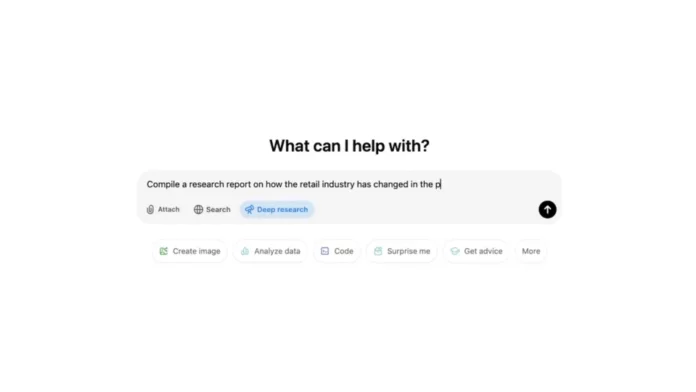There are no two ways about it, there is a new sense of urgency at OpenAI. Two days after the release of o3-mini, the company made a surprise announcement on Sunday night, introducing Deep Research. The new feature allows ChatGPT to find, analyze, and synthesize hundreds of websites and online sources to create “research analyst-level” reports.
In addition to regular text questions, users can upload files, including PDFs and spreadsheets, when they query ChatGPT this way. The chatbot will then compose an answer in “5 to 30 minutes,” and a sidebar documents the agent’s progress and the quotes it uses as it works. “It does in tens of minutes what would take a human many hours,” OpenAI says of the new feature.
“Our ultimate aspiration is a model that can discover and discover new knowledge,” said Mark Chen, OpenAI’s chief scientist, during a live stream of the company’s presentation. “This is the core of our [artificial general intelligence] roadmap.”
As for limitations, OpenAI says that ChatGPT can sometimes hallucinate facts or draw incorrect conclusions when conducting in-depth research, although “at a much lower level” than other current models. Additionally, it is sometimes difficult for the agent to distinguish between reliable information and rumors. Users may also notice some formatting errors. “We expect all of these issues to resolve quickly with increased usage and time,” the company notes.
If this all sounds familiar, that’s because Google’s Advanced package includes its own Deep Research feature, which not only has the same name but also offers the same set of capabilities. One significant difference between the two is that Google offers access to Gemini Advanced through its One AI Premium plan for $20 per month. In contrast, you’ll need a ChatGPT Pro plan for $200 per month to start using OpenAI’s Deep Research version today.
“Deep research in ChatGPT is currently very resource intensive,” the company explains, adding that it will limit Pro users to 100 queries per month. “The longer it takes to research a query, the more computation is required to draw conclusions.”
OpenAI says it is working on a version of Deep Research based on a smaller, more cost-effective model. This, in turn, will allow the company to offer “significantly higher tariff limits.” In the meantime, OpenAI hopes to have the tool in the hands of Plus users “in about a month” after security testing is completed. As with most of the company’s other recent releases, European users will have to wait before they can try the tool for themselves: Deep Research is not yet available to residents of the UK, Switzerland, and the wider European Economic Area.









